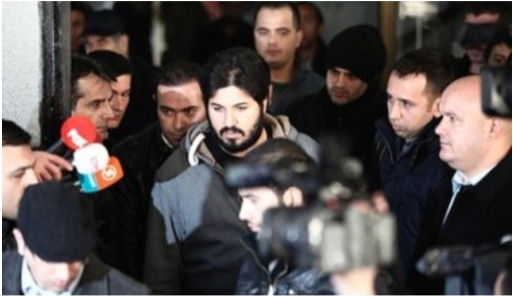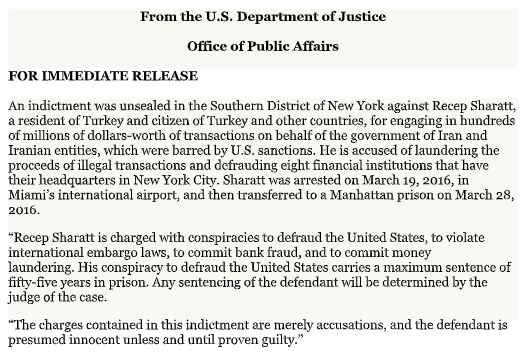
TREASURE SEEKERS
By Roberta Seret
CHAPTER ONE
New York City
January 8, 2017
Rubbing sleep from her dark eyes, Marina Johannes took the circular steps from the second floor of her bedroom suite to the first floor of her Fifth Avenue duplex penthouse. She was already calculating her day, considering how much time she needed with her team of researchers at the Soho lab. She estimated that it would take at least three hours to review which herbs and plants they could consider for the new, organic line. They were searching for a long-lasting, natural property that would hydrate the skin during sultry weather. And after that, she would need two hours uptown at her Madison Avenue and 51st Street showroom to review the Spring, mail-order brochure with the art department.
Marina was New York’s leading cosmetologist. She had made her reputation based on her expertise for making women’s skin more beautiful. She put the lights on in the kitchen and looked out onto the terrace to Central Park, which was a vision of snow. It reminded her of mornings in Romania when she was a girl, and the trees in Transylvania were covered in white frost. Her mother would prepare for her boiling tea with honey and toast thick with rose petal jam. Marina felt the same way now – happy, for she was already planning her trip in March to see her friends, Mica, Anca and Cristina, in Paris for Cristina’s fashion show.
Marina opened her computer on the marble counter to check the day’s news, and then switched on the espresso machine. She waited a minute until the beans ground automatically and a shot of espresso flowed into her cup.
She sipped her coffee while she scanned the news and then stopped, startled, as she read the headline, RAFSANJANI, IRAN’S MOST POWERFUL MAN, IS DEAD.
She read on: “Akbar Hashemi Rafsanjani, one of the founding fathers of the Islamic Republic of Iran, died today in Tehran, January 8 th, 2017, at the age of eighty- three. He was considered by many to be the richest man in Iran. He was president of his country from 1989-1997.”
1989, she remembered. It had been Christmas season in Romania. There were no holiday dinners that year, no good tidings, not even heat. It was a time of revolution, bloody uprisings and people dying for freedom. Ceausescu had been executed on Christmas day, his death, a gift to all Romanians. Yet, there was a mystery about the days before his execution. Why had he travelled to Tehran when there was a revolution going on in Romania? Why had he gone there with dozens of trunks? It was said that Ceausescu had deposited $1 billion dollars-worth of gold in Rafsanjani’s new private
bank.
Marina remembered that after Ceausescu’s death, the revolutionaries took inventory of the dictator’s wealth– his palaces, his art collection, his diamonds, even his hunting lodge walled with gold coins and bathrooms with 14-karat gold toilet seats. But what had happened to Ceausescu’s gold in Iran? The Romanian government was never able to find it. No one from his family had ever claimed it. Did it remain in Tehran with the president?
And yet, Rafsanjani did not have enough time to spend Ceausescu’s billion dollars-worth of gold. Under his administration, Iran had been sanctioned because of terrorism and its uranium enrichment programs. Iran’s economy was blocked. How could he get gold out of the country? Especially, after his presidency, he was suspected by his political enemies of being such a rich businessman. Who could help Rafsanjani with his gold that had come from Ceausescu’s corrupt deals and terrorist partnerships with Qaddafi, Arafat, Ali Bhutto, and North Korea’s, Kim Jung Il? A billion dollars of gold from Romania, such a poor country, while the people lived for twenty-four years under a ruthless dictatorship with little food, little heat, little light, no rights, no freedom, no life. Marina wished she knew what had happened to that gold, deposited in Tehran.
No one had found the treasure in all these years. Yet, questions surrounding its fate lingered in Marina’s thoughts, as they did in the thoughts of many alongside her, trying to find their way out of a legacy of deprivation the dictator had left to them.
Marina made herself another cup of espresso and read on:
“IRAN and TURKEY, PARTNERS IN GOLD. Speculation about gold laundering between Iran and Turkey has led American prosecutors to the world’s richest gold smuggler, Recep Sharatt, who was arrested last year in Miami on March 19, 2016. He had been on record for past crimes committed in the States.
“Sharatt is thirty-three years old, has quadruple citizenship from Iran, Turkey, Azerbaijan, and Macedonia, and has amassed a fortune. He was charged with being the one who had laundered the gold for Iran and Turkey. His holdings include twenty mansions, nine yachts, two private helicopters, a jet plane, a stable of Arabian horses, sports cars, Impressionist paintings, and a gold-plated pistol.”
There was a photo of Sharatt, appearing calm and confident, answering questions from journalists, when he was transferred from Miami to a Manhattan prison. The reporters wanted to learn more about him. Why had he come to the States when he knew he’d be arrested? They called him, an “enigma” not to be trusted.

Underneath Sharatt’s corpulent body, was a map with the caption: THE MAN BEHIND THE CAS-FOR-GOLD SCANDAL – WHICH INVOLVES IRAN, TURKEY AND A MYSTERIOUS COUNTRY. The article began stating, “Sharatt’s scheme was part of an organized plot to assist these governments.”

Marina read on:
“The Manhattan D.A.’s office is investigating the relationship of Recep Sharatt with Akbar Rafsanjani, former president of Iran, Iman and businessman. Did they know each other? Work together? The Times had reviewed and reprinted the official summary of Sharatt’s arrest:

Marina put down the Times, took an apple from the counter, peeled it, and returned her attention to the map featured in the article. She saw in bold letters: ROMANIA. She remembered Ceausescu’s trial, a trial that had been aired on TV on Christmas day, just hours before he and his wife had been executed. The judge of the case had told Ceausescu, “You would have been better off to have stayed in Tehran with your gold.”
Ceausescu went to Tehran on December 18, 1989 and stayed two days. He returned to Bucharest with a group of Iranian Revolutionary Guards to protect him, compliments of president Rafsanjani. It was the peak of Romania’s bloody Revolution.
Marina’s thoughts went to Sharatt, the Iranian and Turkish citizen who was arrested in the United States. What was he doing in Miami?
Then her cell phone rang and interrupted her thoughts. It was her assistant, Janet, saying she’d be twenty minutes late for their meeting – New York traffic. Marina told her not to rush, and returned to finish the article:
“Sharatt was detained at Miami’s airport as he went through Customs. He entered the States with his wife, Deniz Akar, Turkey’s famous rock singer and music composer for cinema. Traveling with them was their five-year-old daughter.
“They were on their way to visit Disney World. But he was taken into custody because of a criminal record issued by New York dating from 2013. Sharatt was subsequently flown to New York City, booked and imprisoned for conspiring to evade
international sanctions.
“In 2013, he was accused by the District Attorney’s Office of the Southern district of New York in absentia, as an accomplice to eight international banks that have headquarters in Manhattan and are under investigation for facilitating the laundering of money for Iran. Sharatt was their conduit to the scheme. For this reason, he was taken from Miami to be booked and incarcerated in Manhattan.
“His wife and daughter were immediately released in Miami and allowed to return to Istanbul. Sharatt’s trial date is set for November 2017; that is, if there is no interference. Judge Robert Friedman, who is presiding over the case, has detained Sharatt in Manhattan’s Correction Center without bail because of his political connections.
“The Attorney General’s office of Manhattan explained why there would be no bail:
“There are powerful political leaders involved in this case. Sharatt has a personal contact with the president of Turkey, Recep Taycik Eratan, whose administration is directly involved in this case.
“Eratan has already spoken several times about Sharatt’s detention to President Hobbamma who has contacted Attorney General Larissa Linde to discuss extradition for Sharatt. President Eratan would do anything to get him back to Turkey. And so, the court doesn’t trust that if Sharatt goes free on bail, that he’d remain in the States.
“And there is also his relations with Iran.'”
Marina studied the map. She hoped there’d be more news in the coming days, news about Turkey and Iran, and the final days of Romania’s dictator with gold.”
* * *
Pyotr Ilyich Tchaikovsky–Piano Concerto No. 1 in B flat Minor, Op. 23-1. Allegro Non Troppo
